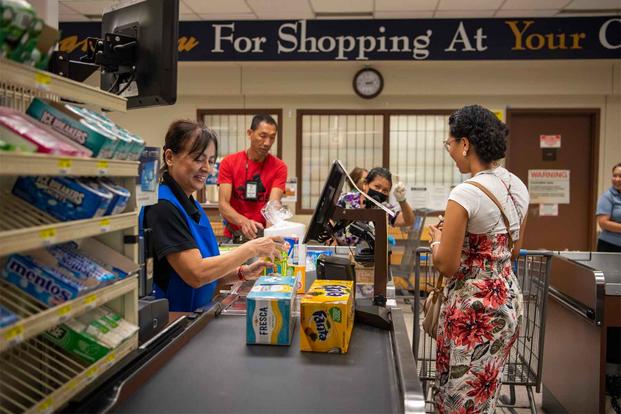Shoppers stationed on Guam or Hawaii who buy a lot of groceries at commissaries may want to start stashing reusable bags in their trunks.
The military grocery stores in the Pacific are among the first to announce that they're eliminating single-use grocery bags. Andersen Air Force Base and Naval Base Guam went "bagless" this month, and Hawaii's commissaries are next, the Defense Commissary Agency, or DeCA, said in a statement released Monday.
"Customers will need to bring their own bags," according to a statement posted online by the stores serving the two Guam bases. "Reusable bags will be available for a small fee."
Read Next: Watchdog Warnings of VA Employees with Criminal Backgrounds Prompt Key Senator to Push for Fixes
Starting April 30, all Hawaii commissaries will cease issuing disposable carryout bags -- paper or plastic. Commissaries in Hawaii include two locations at Joint Base Pearl Harbor-Hickam, one at Marine Corps Base Hawaii and one at the Army's Schofield Barracks.
Both Guam and Hawaii already have local laws in place banning single-use bags, a recent trend among some states and municipalities.
The change "follows local laws" and also aims "to reduce waste and protect the environment," DeCA said. It "takes into account ... various contractual, fiscal, statutory and operational requirements."
The stores in Guam and Hawaii likely won't be the last. California, Colorado, New York and Washington are among the other states and territories with single-use bag bans in place that also have significant populations of military personnel. Hundreds of U.S. cities have enacted their own rules limiting or banning the bags as well.
"We plan to implement a phased approach to eliminate single-use bags that takes into account our patrons' needs and logistical limitations," DeCA Director and CEO John Hall said in the statement. "Over the years, DeCA has been a leader in energy, water and solid waste reduction, as well as implementing a robust recycling program to help protect the environment."
In addition to conventional reusable shopping bags, the stores will sell insulated bags to keep items hot or cold.
"Elimination of single-use bags will be a major shift in commissary patron shopping habits," and DeCA "will address potential concerns during the transition process," the statement said. The agency "will also provide additional resources toward education and awareness to ease the transition."
Commissary use has gone up among young enlisted personnel and junior officers in particular. Hall, who took over last year, told Military.com that increasing sales even more could help the commissary system lower prices and address aging infrastructure such as air conditioners and refrigerators.
Related: New Commissary Chief Eyes Store Improvements, Expansion of Delivery Services













